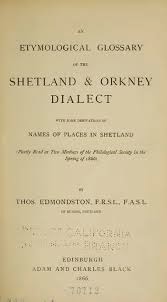Is the language you speak a dialect? I'll bet the majority of us would say, "No, I speak real language." After all, the version of the language we speak serves our communication needs quite well, day in and day out.
From a linguistic viewpoint, the answer to the above question is, "Yes, I speak a dialect, because everyone speaks a dialect." Some linguists even claim that the term 'dialect' should be substituted for 'language'.
But the term 'dialect' has acquired a bad reputation through the years. It carries a whiff of something unpleasant, unacceptable, substandard, uneducated, lower class. You get the picture. So it is easy to see why we may be reluctant to admit that we speak a dialect.
The definition of a dialect has nothing to do with language itself, and everything to do with society. In most societies, one dialect (version) of a language becomes what is known as the 'standard language.' Ah, that term feels much better, doesn't it? Generally, a dialect becomes the standard language/dialect because it is spoken by those individuals with power, influence and money.
Linguists often quote a translation of an observation in Yiddish that " A language is a dialect with an army and a navy." In other words, if a certain dialect has power behind it, it will be recognized as a language. Conversely, a dialect without power will remain a dialect. All dialects have an equal ability to convey what their speakers want to say.
Standard language/dialect is associated with formal oral communication and also with writing.
It is usually found in the media, textbooks, classrooms of all levels, and second language instruction. Standard language is often associated with the variety of language spoken in the capital cities of countries, since they are generally centers of government, education, and banking. So we have some language snobbery occurring - Parisians versus Canadians, residents of Madrid versus those of Mexico City, Londoners versus Scots, Washingtonians versus Texans.
 |
| Some Scottish dialects |
A popular example comes to mind to demonstrate dialectal differences. How do you express plural 'you'? In Standard English, there is not a separate word for plural 'you'. Sometimes just saying 'you' doesn't express the plural meaning that I need. Being a Texan, I find 'y'all' useful. Other English speakers in the United States have invented other creative words for plural 'you', like 'youse', 'you-uns', and the current choice of many young wait staffers, 'you guys'. Here is a short article giving more 'you' plural options. From Y'all To Youse, 8 English Ways to Make "You" Plural
Now comes decision time. Should a person speak their own regional dialect or the standard dialect.?The answer will be a personal one, depending on factors such as audience, communication style, and intended communication. If I speak to my family with the same language that I would use teaching a university course, my family would think that I am putting on airs. And if I were to teach a class using my Texas drawl, I might have a few critical students.
As for me, 'y'all' will continue to serve me in my everyday conversations. But when I am receiving my award for the Nobel Prize for Literature, I may decide 'you' is a more efficacious choice to thank the panel members. I doubt if that will be one of my worries for a while!




No comments:
Post a Comment